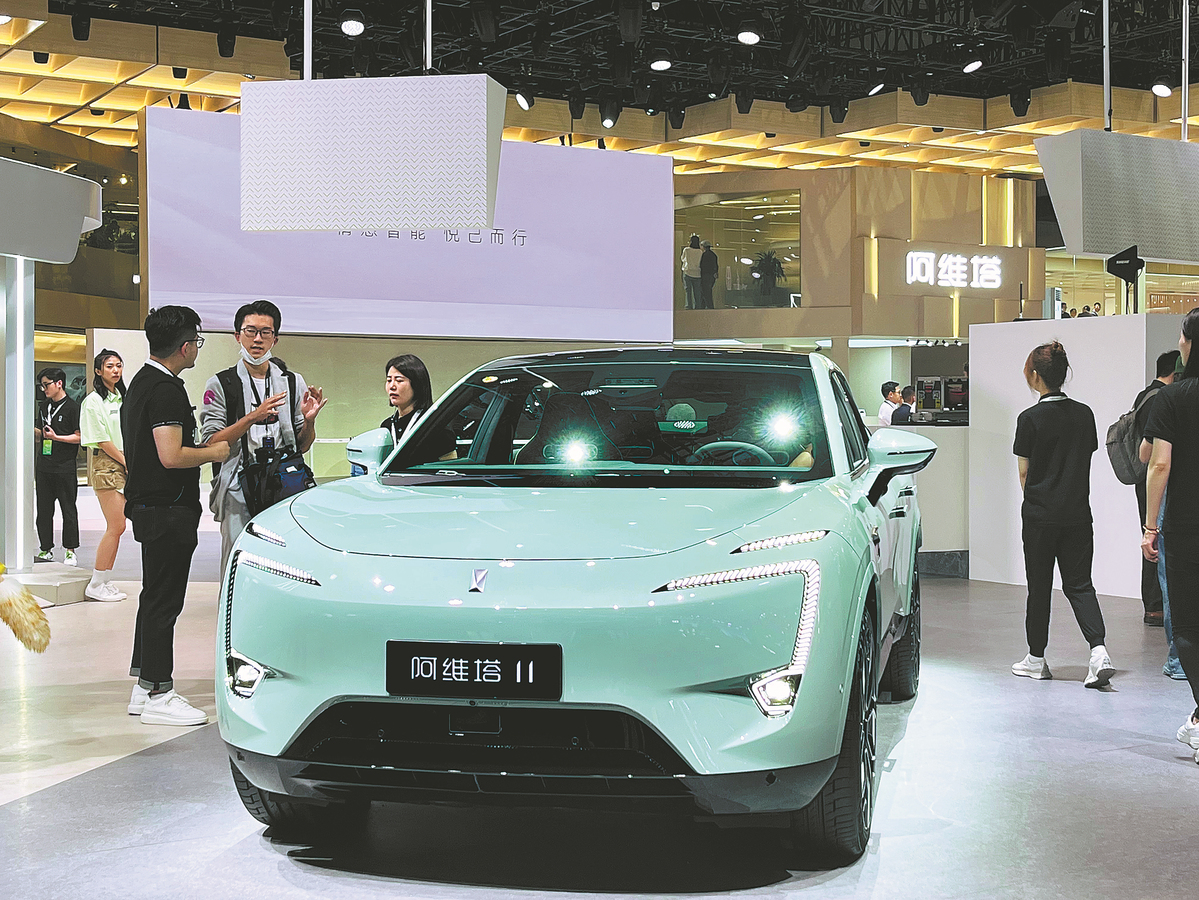China's NEV market sees robust demand

CHONGQING - The number of residents of Southwest China's Chongqing municipality who purchased new energy vehicles (NEVs) increased 18.9 percent in the first quarter of 2023, showing great demand potential in the major automobile industry hub, according to local authorities.
NEVs have become the new driving force for automobile sales in the mountainous municipality. More than 300 NEV types from over 40 brands were displayed at the Chongqing International Auto Exhibition held from June 9 to 18, drawing the widespread attention of visitors.
"NEVs are more attractive than petrol vehicles for consumers, as we see more visitors and sales consultants in the NEV exhibition halls," said Ma Wenting, a store manager for the NEV brand Deepal. "Groups of people came to consult on our products when I was at the exhibition booth."
China's NEV sales expanded 60.2 percent year-on-year to 717,000 units this May, according to the China Association of Automobile Manufacturers. The passion and increasing demand for NEVs in China has brought on a trend of switching from gasoline to electric vehicles.
"Many people around me have changed their petrol cars to NEVs," said a visitor surnamed Guo, who noted that NEVs can have lower travel costs and provide better driving experience than petrol vehicles. The development of hybrid vehicles and extended-range electric hybrid vehicles has largely alleviated drivers' anxieties about insufficient range, Guo said.
The annual Global Electric Vehicle Outlook released by the International Energy Agency shows that China was the leading market for electric cars in 2022, accounting for 60 percent of global electric car sales that year. More than half of all electric cars on roads globally are in China.
Chongqing resident Chen Li just bought an AVATR 11, an electric SUV launched in China. Not only has he replaced all three of his petrol vehicles with NEVs, but he has also purchased two NEVs for his parents and in-laws. "China's self-developed NEVs stand out for their excellent driving performance, nice appearances and competitive prices," Chen said.
In addition to the benefit of a cost-effective performance, Chinese consumers have also highlighted their preference for intelligent and interactive driving experiences.
"For high-end electric SUVs priced at over 300,000 yuan ($41,000), intelligent driving has become a crucial advantage," said Chen Siyan, director of AVATR's businesses in southwest China's Chongqing Municipality and Guizhou Province.
As sales of NEVs surge, China has introduced a full range of policies to inject continuous vitality into the market.
Chinese authorities on June 21 announced that China would extend its preferential purchase tax policy for NEVs to the end of 2027. The move seeks to support the NEV sector's development and stimulate automobile consumption. Preliminary estimates show the policy will result in tax exemptions and reductions totaling 520 billion yuan.
A high-quality charging infrastructure network with extensive coverage will basically be in place by 2030, capable of supporting the development of NEVs and people's charging needs, according to a guideline released recently by the General Office of the State Council.
"We seek to stimulate consumption with a full range of support policies, cooperate with automobile enterprises to promote the popularity and development of NEVs, and tap into the NEV market's potential by proactively improving the consumption environment,"said Lai Han, deputy director of the Chongqing Liangjiang New Area industry promotion bureau.

